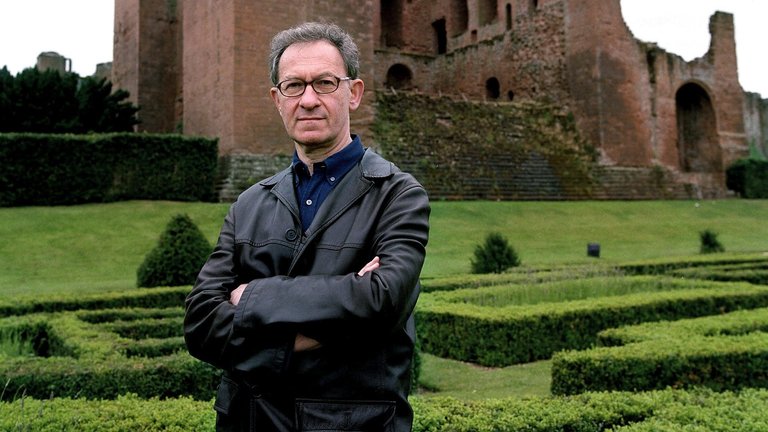
At the turn of the millennium, history seemed to be reaching its end, and Britain appeared to be on the right side of it. The Cold War had been won, the Troubles in Northern Ireland had nearly come to a miraculous resolution, and Tony Blair’s Third Way politics seemed to offer a pragmatic, post-ideological vision for the future. Britain stood as the dominant force in a soon-to-be federalised Europe, London thrived as the world’s financial capital, and the cultural phenomenon of “Cool Britannia” saw British pop culture once again conquering the globe. Against this backdrop of apparent triumph, it seemed an opportune moment to reflect on the centuries of struggle and achievement that had led to this utopian present. This, among other motivations, likely inspired the BBC to produce one of its most ambitious and prestigious documentary series, A History of Britain.
The series was authored and presented by Simon Schama, a renowned British historian celebrated for his works on the French Revolution, art history, and, later, Jewish history. Schama’s ability to weave compelling narratives from complex historical events made him an ideal choice for this monumental project. A History of Britain consists of fifteen episodes, each focusing on a specific period or event that Schama deemed pivotal to the nation’s story. These episodes were divided into three sub-series (equivalent to seasons in American television parlance) and aired between 2000 and 2002.
One of the challenges of any historical work with such an ambitious scope is deciding where to begin. For Britain, this is complicated by the relative scarcity of early written records compared to other, more “civilised” regions of Europe. Historians often rely on archaeology and myth to fill in the gaps. Schama addresses this issue by citing the ancient Roman historian Tacitus, who attributed Britain’s historical obscurity to its remoteness. This scarcity of records allows the first episode, aptly titled Beginnings, to take a leisurely approach to the origins of Britain as part of written history. Schama visits Skara Brae, a remarkably preserved Neolithic village in the Orkney Islands, to illustrate how Britain’s geographical isolation allowed its inhabitants to develop unique cultures, institutions, and political ideas in relative peace, while remaining close enough to the continent to avoid stagnation.
The episode then briskly covers the next three millennia, highlighting how waves of invaders—Celts, Romans, and Anglo-Saxons—each contributed to shaping British identity. Subsequent episodes adopt a more focused approach. The second episode, for instance, delves into the Norman Conquest, a pivotal moment in British history. This pattern continues throughout the series, with episodes dedicated to key events such as Edward Longshanks’ campaigns to unify the British Isles, the transformative impact of the Black Death on medieval society, and Henry VIII’s personal struggles that led to the English Reformation. The first series concludes with an exploration of Elizabeth I’s reign, portrayed as a golden age of British history.
The second series shifts focus to the Early Modern Period, tracing Britain’s transformation into a modern state and emerging global power. It culminates in an episode detailing how the loss of North American colonies during the American Revolution was offset by the expansion of British influence in India. The third series addresses the challenges of modernity, from the Romantic infatuation with the French Revolution to the patriotic fervour of the Napoleonic Wars. It also examines the social upheavals caused by the Industrial Revolution, including widespread poverty and calls for reform, as well as Britain’s mishandling of its imperial possessions in Ireland and India.
Schama chooses 1965 as the endpoint for the series, marked by the funeral of Winston Churchill. The final episode, Two Winstons, presents a parallel biography of Churchill and George Orwell, the writer whose most famous character, Winston Smith, shares the former prime minister’s name. Despite their differences, both men are portrayed as defenders of British ideals of freedom against the threats of Fascism and Communism. This episode encapsulates Schama’s broader theme of Britain’s enduring struggle to balance liberty and order.
The series is undeniably impressive, with professional direction and Schama’s eloquent narration making complex historical events accessible to a broad audience. Like many documentaries of its kind, it features visits to significant historical sites, accompanied by paintings, statues, and archival images. Quotes from historical figures are narrated by prominent British actors, adding depth to the storytelling. The second and third series incorporate dramatic reconstructions, some drawn from the BBC’s archives and others newly created. While these techniques generally enhance the narrative, David Harle’s musical score occasionally veers into melodrama, detracting from Schama’s otherwise measured tone.
The third series, however, feels somewhat disappointing compared to its predecessors. Schama’s decision to end the narrative in 1965 is understandable, given the political sensitivity of more recent events, such as the legacy of Thatcherism. However, his objectivity is called into question by the omission or glossing over of significant chapters in British history, such as the Wars of the Roses and World War I. These gaps undermine the series’ claim to comprehensiveness.
Despite its flaws, A History of Britain remains a high-quality BBC production and a valuable resource for anyone interested in British history. Its engaging presentation and Schama’s insightful commentary make it a compelling watch. However, its subjectivity and selective focus mean it should be seen as a starting point for exploring British history rather than a definitive judgment. In the context of the last quarter-century, the series also serves as a fascinating time capsule, reflecting the optimism and confidence of a Britain that believed it had reached the end of history—a belief that subsequent events would challenge in profound ways.
RATING: 7/10 (+++)
Blog in Croatian https://draxblog.com
Blog in English https://draxreview.wordpress.com/
InLeo blog https://inleo.io/@drax.leo
Hiveonboard: https://hiveonboard.com?ref=drax
InLeo: https://inleo.io/signup?referral=drax.leo
Rising Star game: https://www.risingstargame.com?referrer=drax
1Inch: https://1inch.exchange/#/r/0x83823d8CCB74F828148258BB4457642124b1328e
BTC donations: 1EWxiMiP6iiG9rger3NuUSd6HByaxQWafG
ETH donations: 0xB305F144323b99e6f8b1d66f5D7DE78B498C32A7
BCH donations: qpvxw0jax79lhmvlgcldkzpqanf03r9cjv8y6gtmk9
Posted Using INLEO